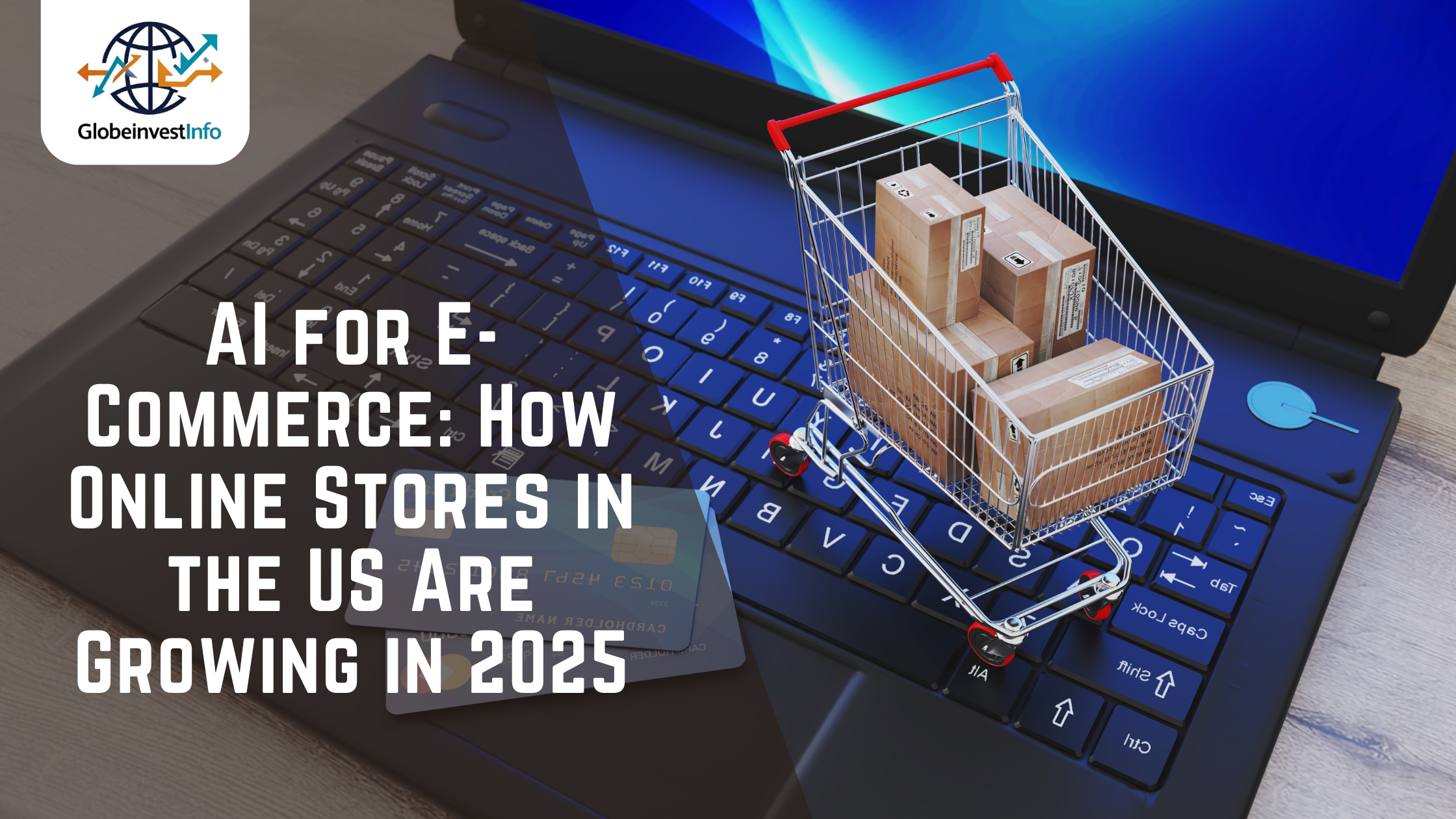E-commerce in the US is more competitive than ever. Millions of online stores sell everything from clothing to electronics, making it hard for small businesses to stand out. In 2025, artificial intelligence (AI) is changing how e-commerce businesses attract customers, increase sales, and manage operations.
AI is not just for big brands anymore. Today, affordable AI tools are available to even the smallest online shop, helping them run smarter and grow faster. From product recommendations to customer support, here’s how AI is shaping e-commerce in the US.
1. Personalized Product Recommendations
One of the most effective uses of AI in e-commerce is personalized shopping. Platforms like Amazon Personalize and Shopify’s AI features help stores recommend products based on customer browsing and purchase history.
Why it helps:
- Shows customers products they’re more likely to buy.
- Increases average order value.
- Makes online shopping feel more personal.
For US online stores, personalization is no longer optional—it’s expected by customers.
2. AI Chatbots for Customer Support
Answering customer questions quickly is critical in e-commerce. AI-powered chatbots like Tidio and Intercom provide 24/7 support.
Benefits:
- Handles FAQs instantly.
- Reduces need for large support teams.
- Improves customer satisfaction with faster responses.
For small e-commerce stores, AI chatbots save money and improve service at the same time.
3. Smarter Marketing Campaigns
AI marketing tools like Jasper and Copy.ai help online stores create social media ads, email campaigns, and product descriptions.
Why e-commerce stores use them:
- Generates catchy ad copy quickly.
- Suggests personalized emails based on customer behavior.
- Reduces the cost of hiring marketing agencies.
In 2025, AI-generated content is helping US e-commerce stores stay active and relevant online.
4. AI-Powered Search and Product Discovery
Shoppers often leave websites when they can’t find what they want. Tools like Algolia and Bloomreach use AI to improve search accuracy and product discovery.
How it helps customers:
- Provides relevant search results instantly.
- Understands natural language queries.
- Increases conversion rates by showing the right products.
For online stores, better search equals higher sales.
5. Dynamic Pricing with AI
Pricing can make or break an online store. AI pricing tools like Prisync and Competera track competitors and adjust prices automatically.
Advantages for businesses:
- Keeps prices competitive.
- Maximizes profit margins.
- Saves hours of manual research.
This is especially useful in industries like electronics and fashion, where prices change often.
6. AI for Fraud Detection and Security
Online stores face risks like fake orders and payment fraud. AI-powered security tools like Signifyd and Riskified protect e-commerce platforms by detecting suspicious behavior.
Why it matters:
- Prevents chargebacks and fraud losses.
- Builds trust with customers.
- Works automatically in the background.
For small businesses, AI security tools provide peace of mind without needing large IT teams.
7. Smarter Inventory and Logistics
AI doesn’t just improve the front end of e-commerce—it also helps with operations. Tools like TradeGecko (QuickBooks Commerce) and Skubana use predictive analytics to manage stock and shipping.
Benefits for online stores:
- Prevents overstocking and understocking.
- Reduces shipping delays.
- Saves money on storage and logistics.
Efficient inventory management is key to keeping customers happy and loyal.
Want to learn more about how AI is shaping business beyond e-commerce? Read our article on AI for Business.
FAQs
Q1: Can small e-commerce stores in the US afford AI tools?
Yes. Many AI tools offer free or low-cost plans, making them accessible for small businesses.
Q2: Do AI chatbots replace human support?
No. They handle common questions but still pass complex issues to human staff.
Q3: How does AI improve online store sales?
AI recommends products, creates personalized ads, and improves customer experiences, leading to more conversions.
Q4: Are AI pricing tools safe to use?
Yes. They use real-time data and market analysis to suggest competitive prices.
Q5: What’s the easiest AI tool for e-commerce beginners?
AI chatbots like Tidio or product recommendation engines like Shopify’s AI features are the best places to start.
Conclusion
AI is reshaping e-commerce in the US by making online stores more efficient, personalized, and secure. From smarter product recommendations to automated customer support and dynamic pricing, AI tools help even small businesses compete with larger brands.
In 2025, AI is not just an advantage—it’s becoming essential for growth in online retail. The best part is that many of these tools are affordable or free to try, giving every online store the chance to grow smarter.

